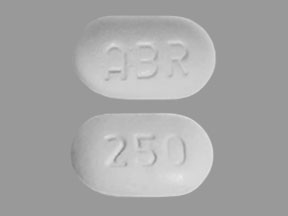Abiraterone Side Effects
Medically reviewed by Drugs.com. Last updated on Oct 28, 2023.
Applies to abiraterone: oral tablet.
Serious side effects of Abiraterone
Along with its needed effects, abiraterone may cause some unwanted effects. Although not all of these side effects may occur, if they do occur they may need medical attention.
Check with your doctor immediately if any of the following side effects occur while taking abiraterone:
More common
- Bladder pain
- bloating or swelling of the face, arms, hands, lower legs, or feet
- bloody or cloudy urine
- blurred vision
- bone pain or fracture
- chest pain or discomfort
- decreased urine
- difficult, burning, or painful urination
- dry mouth
- fainting
- fast, pounding, or irregular heartbeat or pulse
- feeling of warmth
- frequent urge to urinate
- headache
- increased thirst
- increased urge to urinate during the night
- lightheadedness, dizziness, or fainting
- loss of appetite
- lower back or side pain
- mood changes
- muscle pain or cramps
- nausea
- nervousness
- numbness or tingling in the hands, feet, or lips
- pain or swelling in the arms or legs without any injury
- passing urine more often
- pounding in the ears
- rapid weight gain
- redness of the face, neck, arms, and occasionally, upper chest
- seizures
- slow heartbeat
- sudden sweating
- swelling
- swelling with pits or depressions on the skin
- trouble breathing
- unusual tiredness or weakness
- unusual weight gain or loss
- vomiting
- waking to urinate at night
Less common
- Arm, back, or jaw pain
- chest tightness or heaviness
- clay-colored stools
- cool, sweaty skin
- dark urine
- decreased urine output
- difficulty with breathing
- dilated neck veins
- extreme tiredness or weakness
- fever
- irregular breathing
- itching skin or rash
- light-colored stools
- stomach pain or tenderness
- sweating
- weakness
- weight gain
- yellow eyes or skin
Rare
- Darkening of the skin
- diarrhea
- mental depression
Incidence not known
- Anxiety
- chills
- cold sweats
- coma
- confusion
- cool, pale skin
- cough
- difficulty swallowing
- general feeling of discomfort or illness
- hives
- increased hunger
- irregular heartbeat, recurrent
- muscle pain, spasms, stiffness, tenderness, wasting, or weakness
- nightmares
- puffiness or swelling of the eyelids or around the eyes, face, lips, or tongue
- shakiness
- slurred speech
- stomach pain, continuing
- thickening of bronchial secretions
- unpleasant breath odor
- unusual tiredness or weakness
- vomiting of blood
Other side effects of Abiraterone
Some side effects of abiraterone may occur that usually do not need medical attention. These side effects may go away during treatment as your body adjusts to the medicine. Also, your health care professional may be able to tell you about ways to prevent or reduce some of these side effects.
Check with your health care professional if any of the following side effects continue or are bothersome or if you have any questions about them:
More common
- Belching
- body aches or pain
- difficulty with moving
- ear congestion
- heartburn
- indigestion
- joint pain
- loss of voice
- runny or stuffy nose
- sneezing
- sore throat
- stomach discomfort or upset
- swelling or stiffness of the joints
For Healthcare Professionals
Applies to abiraterone: oral tablet.
Endocrine
Uncommon (0.1% to 1%): Adrenocortical insufficiency[Ref]
Hepatic
Very common (10% or more): Elevated ALT (up to 41.9%), elevated AST (up to 37.3%)
Common (1% to 10%): Elevated total bilirubin
Postmarketing reports: Fulminant hepatitis, acute liver failure and death[Ref]
Cardiovascular
Very common (10% or more): Hot flush (up to 22.3%), hypertension (up to 21.6%)
Common (1% to 10%): Arrhythmia, chest pain/chest discomfort, angina pectoris, atrial fibrillation, tachycardia, myocardial infarction/ischemia, cardiac failure (e.g., congestive heart failure, left ventricular dysfunction, decreased ejection fraction)
Frequency not reported: QT prolongation[Ref]
Musculoskeletal
Very common (10% or more): Joint swelling/discomfort (up to 30.3%), muscle discomfort (up to 26.2%), contusion (up to 13.3%)
Common (1% to 10%): Groin pain, fractures, falls
Postmarketing reports: Rhabdomyolysis, myopathy[Ref]
Hematologic
Very common (10% or more): Lymphopenia (up to 38.2%), anemia[Ref]
Metabolic
Very common (10% or more): Hypertriglyceridemia (up to 62.5%), hyperglycemia (up to 56.6%), hypernatremia (up to 32.8%), hypokalemia (up to 28.3%), fluid retention/edema (up to 26.7%), hypophosphatemia (up to 23.8%), elevated alkaline phosphatase, hypercholesterolemia[Ref]
Renal
Frequency not reported: Renal failure[Ref]
Other
Very common (10% or more): Fatigue (up to 39.1%)
Common (1% to 10%): Sepsis, pyrexia[Ref]
Respiratory
Very common (10% or more): Cough (up to 17.3%), upper respiratory tract infection (up to 12.7%), dyspnea (up to 11.8%), nasopharyngitis (up to 10.7%)
Postmarketing reports: Non-infectious pneumonitis, allergic alveolitis[Ref]
Genitourinary
Very common (10% or more): Urinary tract infection (up to 12%), hematuria (up to 10.3%)
Common (1% to 10%): Urinary frequency, nocturia[Ref]
Psychiatric
Very common (10% or more): Insomnia (up to 13.5%)[Ref]
Gastrointestinal
Very common (10% or more): Constipation (up to 23.1%), diarrhea (up to 21.6%), dyspepsia (up to 11.1%), vomiting[Ref]
Dermatologic
Common (1% to 10%): Rash[Ref]
Frequently asked questions
More about abiraterone
- Check interactions
- Compare alternatives
- Pricing & coupons
- Reviews (43)
- Drug images
- Side effects
- Dosage information
- During pregnancy
- Drug class: miscellaneous antineoplastics
- En español
Patient resources
- Abiraterone drug information
- Abiraterone, micronized (Advanced Reading)
- Abiraterone Acetate (Zytiga)
Other brands
Professional resources
Other brands
Related treatment guides
References
1. Product Information. Zytiga (abiraterone). Centocor Inc. 2011.
2. Product Information. Yonsa (abiraterone). Sun Pharmaceutical Industries. 2018.
Further information
Always consult your healthcare provider to ensure the information displayed on this page applies to your personal circumstances.
Some side effects may not be reported. You may report them to the FDA.

